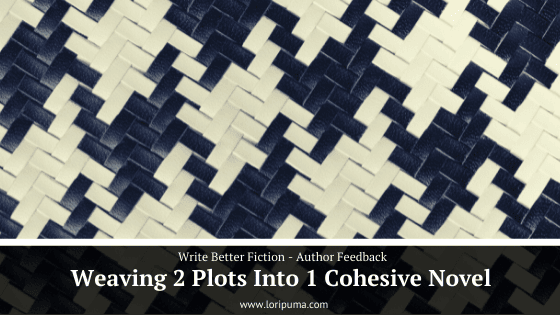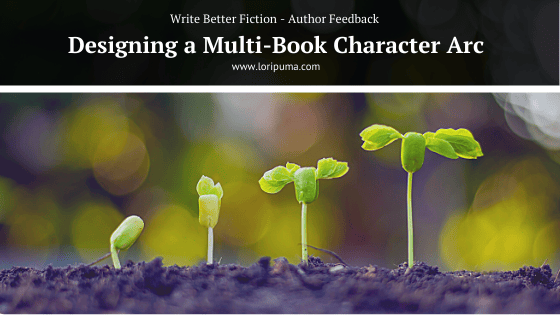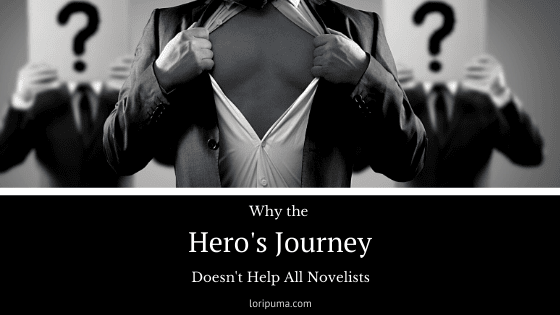Why the Hero's Journey Doesn't Help All Novelists
/Some authors say the hero’s journey is the only tool they needed to write their novels. But not all authors have that experience. If you’ve tried the hero’s journey and it just didn’t click, here’s what might have happened, and what you can do instead.
How the Hero’s Journey got popular
Joseph Campbell, a literature professor who lived from 1904 to 1987, described a theory he called the Hero’s Journey, or the monomyth, to summarize what he saw as common elements of myths and folktales from across cultures. He described his theory in a dense academic book, The Hero with a Thousand Faces.
The theory has been criticized for being based mostly on Western stories, for being sexist and racist, and for overlooking important differences between stories, but there’s no denying the influence of Campbell’s ideas on popular storytelling. George Lucas said the Hero’s Journey helped him write Star Wars, and the theory has been a popular tool amongst movie studios. Film exec Christopher Vogler describes how he and his colleagues applied the Hero’s Journey to films they produced in the preface to his book The Writer’s Journey.
But just because something is popular, doesn’t mean it’s effective. Here are three reasons the Hero’s Journey may not be right for you.
1. It’s best used for analysis and enhancement, not creation
The Hero’s Journey wasn’t created to help writers craft new stories from scratch. Joseph Campbell laid out his theory while analyzing existing myths and folktales, not writing new ones. Movie studio executives like Christopher Vogler used Campbell’s ideas mostly to enhance screenplays that were already good enough to get passed along to a studio exec to read.
Some authors intuitively know how to write stories that hold readers’ attention, but if you’re not one of those authors, the Hero’s Journey doesn’t tell you what to do to become one.
Whether you’re writing fantasy, mystery, romance, thriller, or science fiction, find out how close you are to writing a novel readers can’t put down with a quiz.
2. It’s not specific enough
The Hero’s Journey theory says stories contain characters who serve in archetypal roles—hero, shadow, mentor, ally, shapeshifter, herald, threshold guardian. It also says plots include scenes that represent different stages on the long the journey—call to adventure, refusal of the call, meeting with the mentor, the ordeal, the reward, the return with the elixir, etc.
The archetypes are very broad, and the requirements of each stage are vague. A single character can serve multiple archetypal roles, and a stage may be represented metaphorically so you can convince yourself that pretty much anything satisfies the requirements of the archetypes or the stages.
If you’re an author who’s already written a manuscript with interesting characters and page-turning scenes, then the Hero’s Journey can be an excellent source of ideas for enhancement to your characters and plot. But if you’re still working on captivating your readers, then there’s little guidance on how to craft characters that readers care about or a plot that will hold readers’ attention.
3. It doesn’t address common manuscript problems
If you’re an author who is wondering how to transform a boring protagonist into a character readers root for, how to craft a villain readers love to hate, or how to turn a meandering plot into a page-turner, you won’t find answers in the Hero’s Journey. Adding another archetypal character probably won’t help, nor will revising a scene to be more inline with the stages of Joseph Campbell described them. Your story has more fundamental problems that need a different approach to improve.
What to do instead
If the Hero’s Journey is helping you write novels your readers love, then keep on keeping on! There’s no sense in fixing what isn’t broken. But if you’ve tried it and the hero’s journey just isn’t working for you, here’s what else you can do.
Get practical help that addresses what’s actually preventing your story from coming together. Work with an editor who can help you identify what *you* specifically need to work on. Seek advice from writing experts who specialize in helping authors like you. Experts who work with authors not only in your genre, but with authors at a similar stage in their writing career.
If you’re an author who hasn’t made it yet and you’re writing in a popular genre like fantasy, science fiction, romance, thriller, mystery, or young adult, chances are what you need help with is your novel’s conflict. For examples and advice on how to turn lackluster conflict into blockbuster conflict in your novel, check out the free guide Crafting Page-Turning Conflict.










